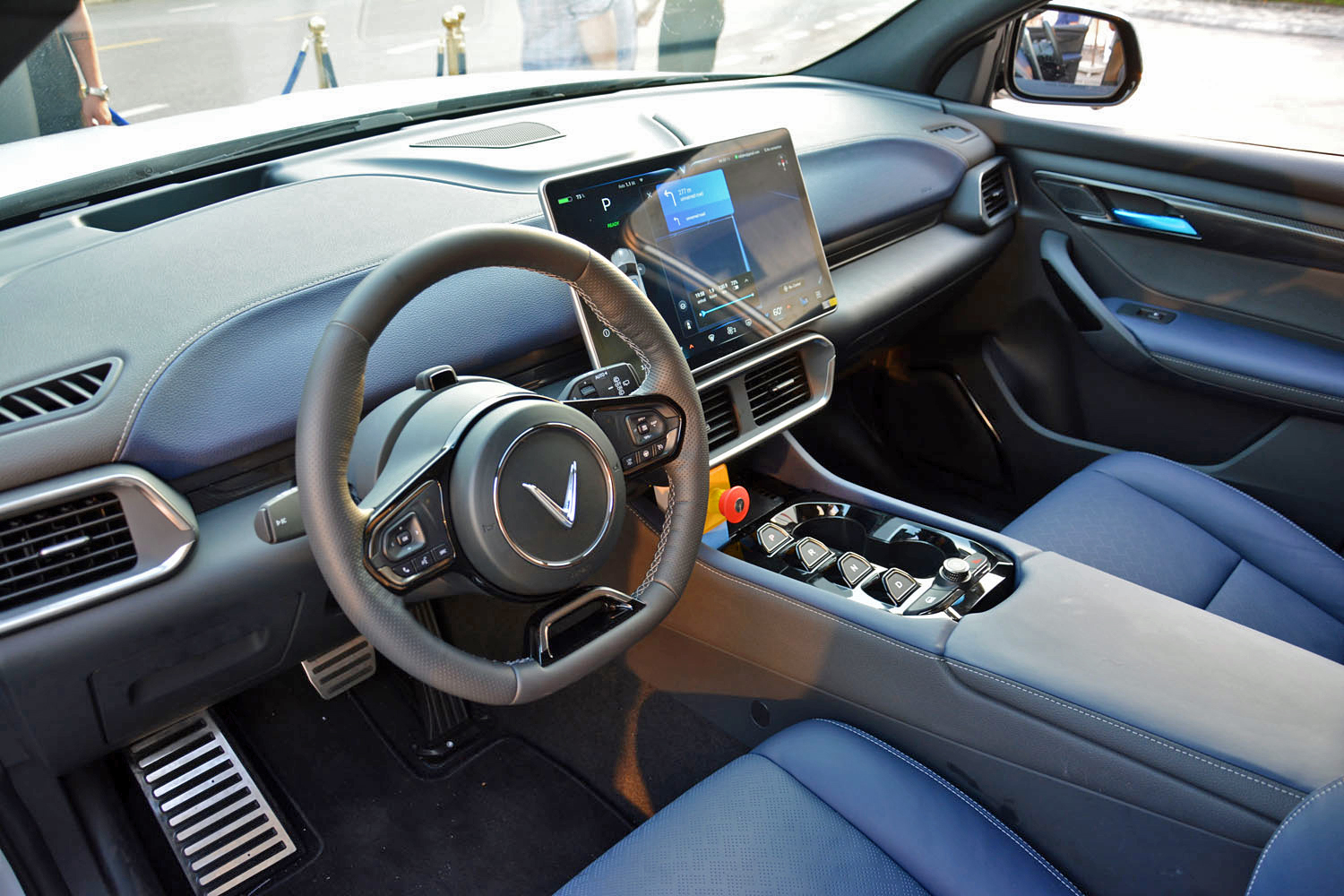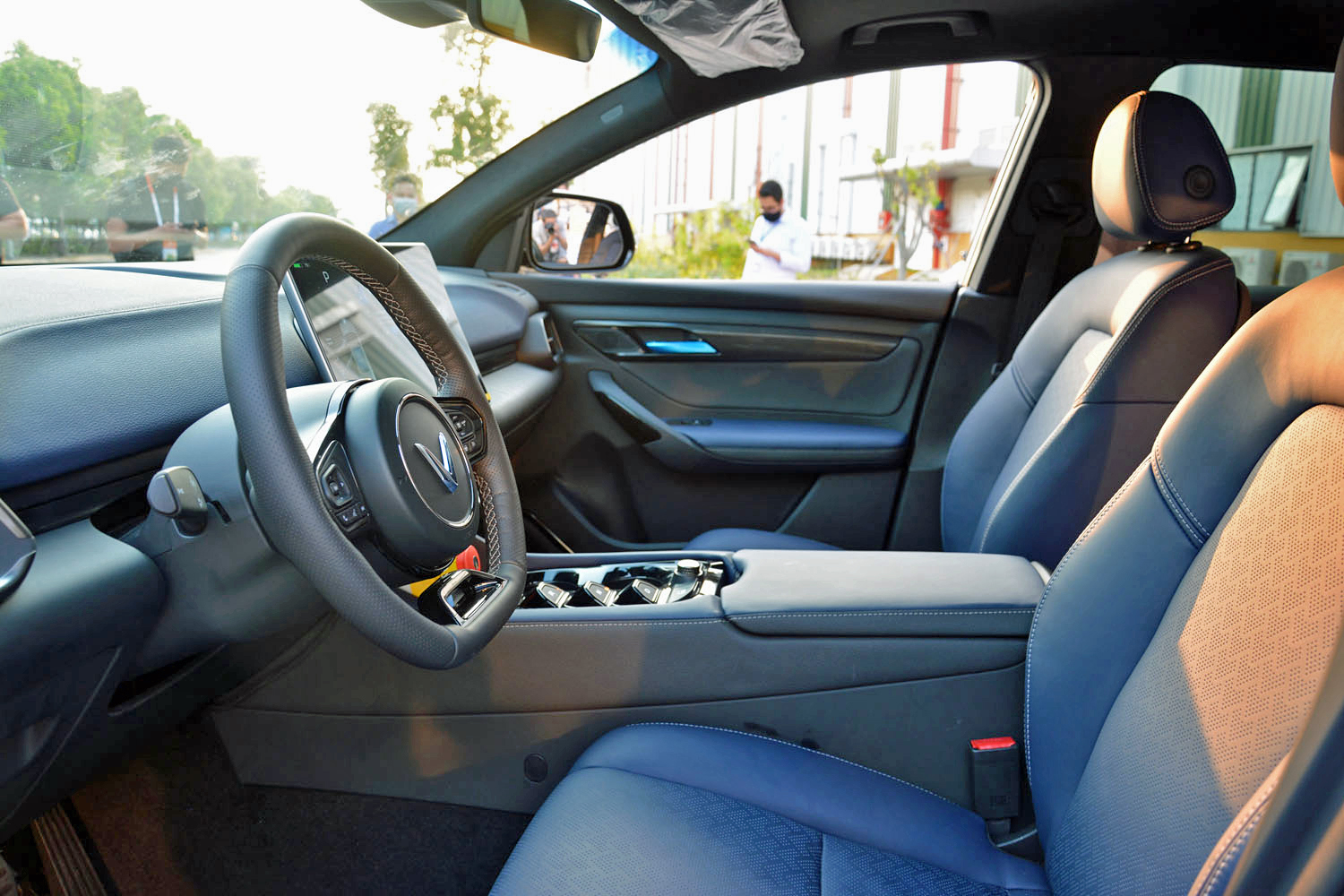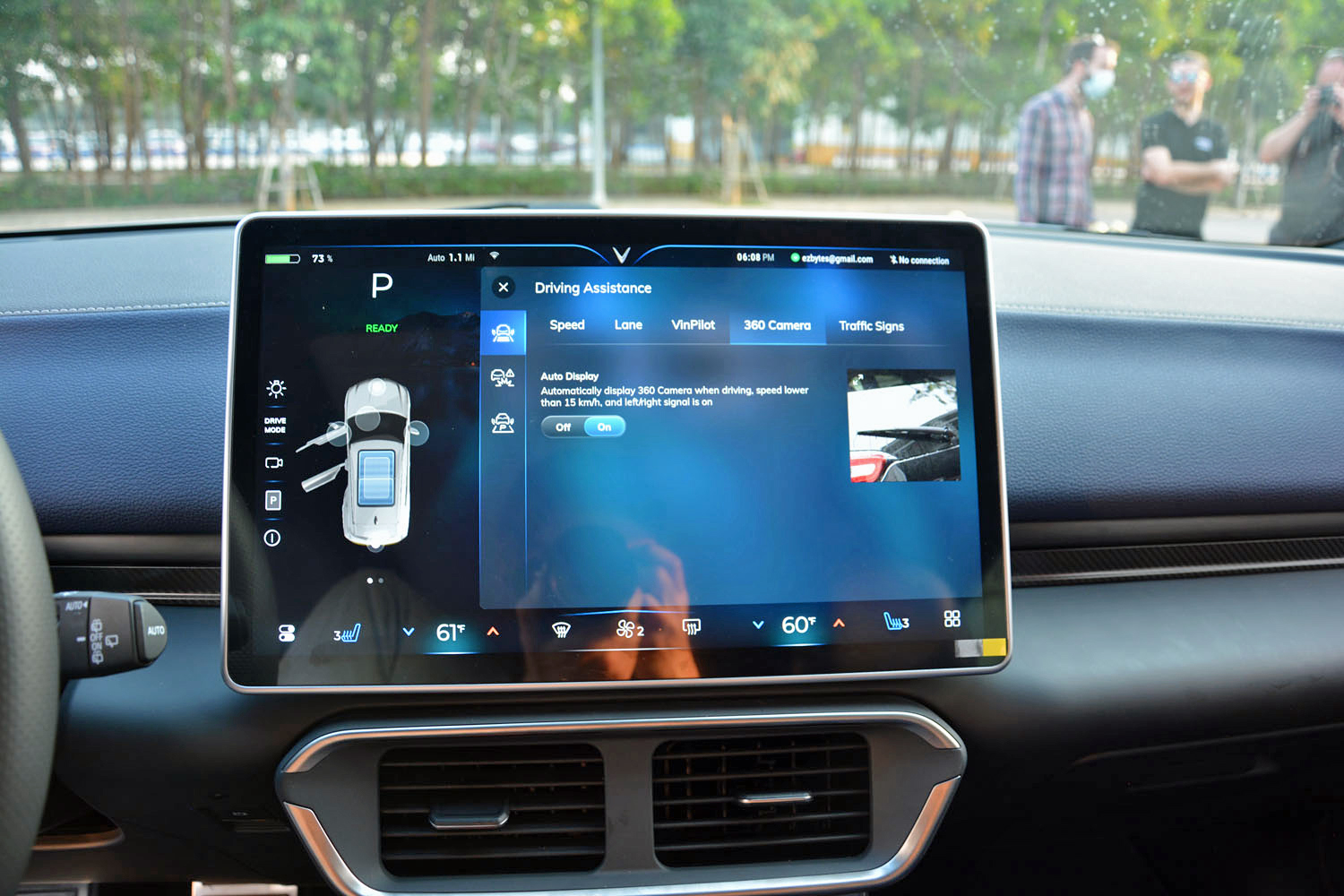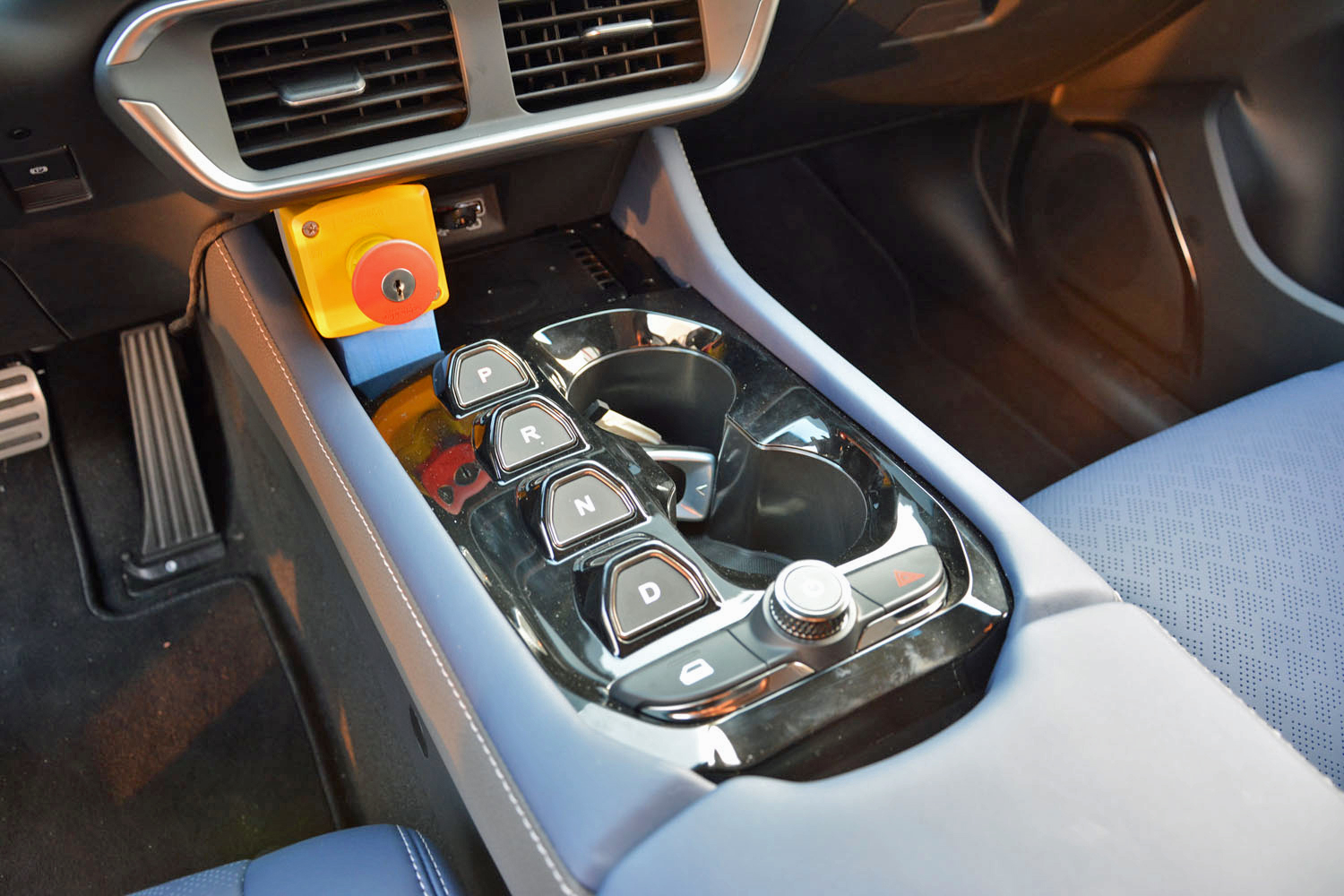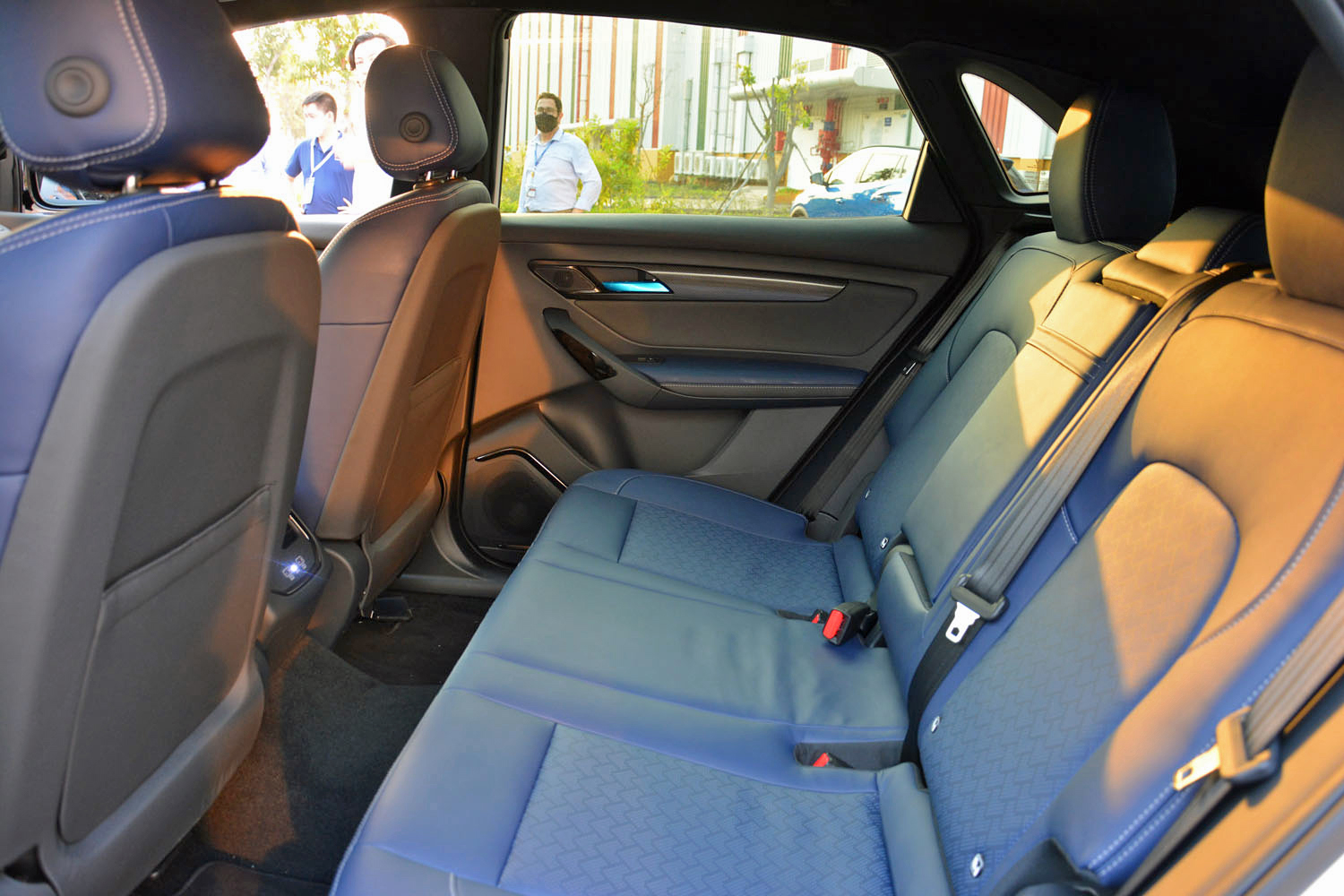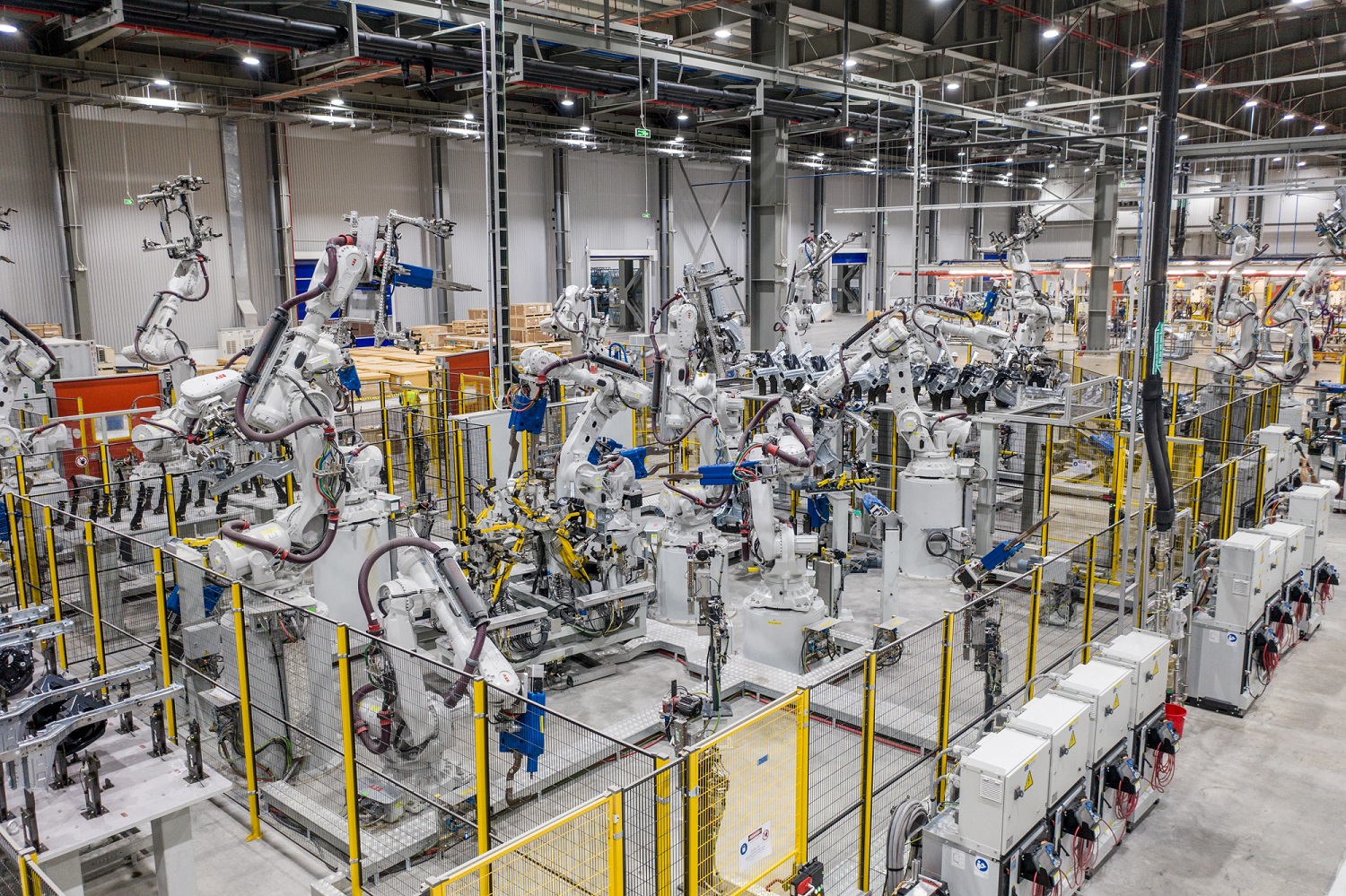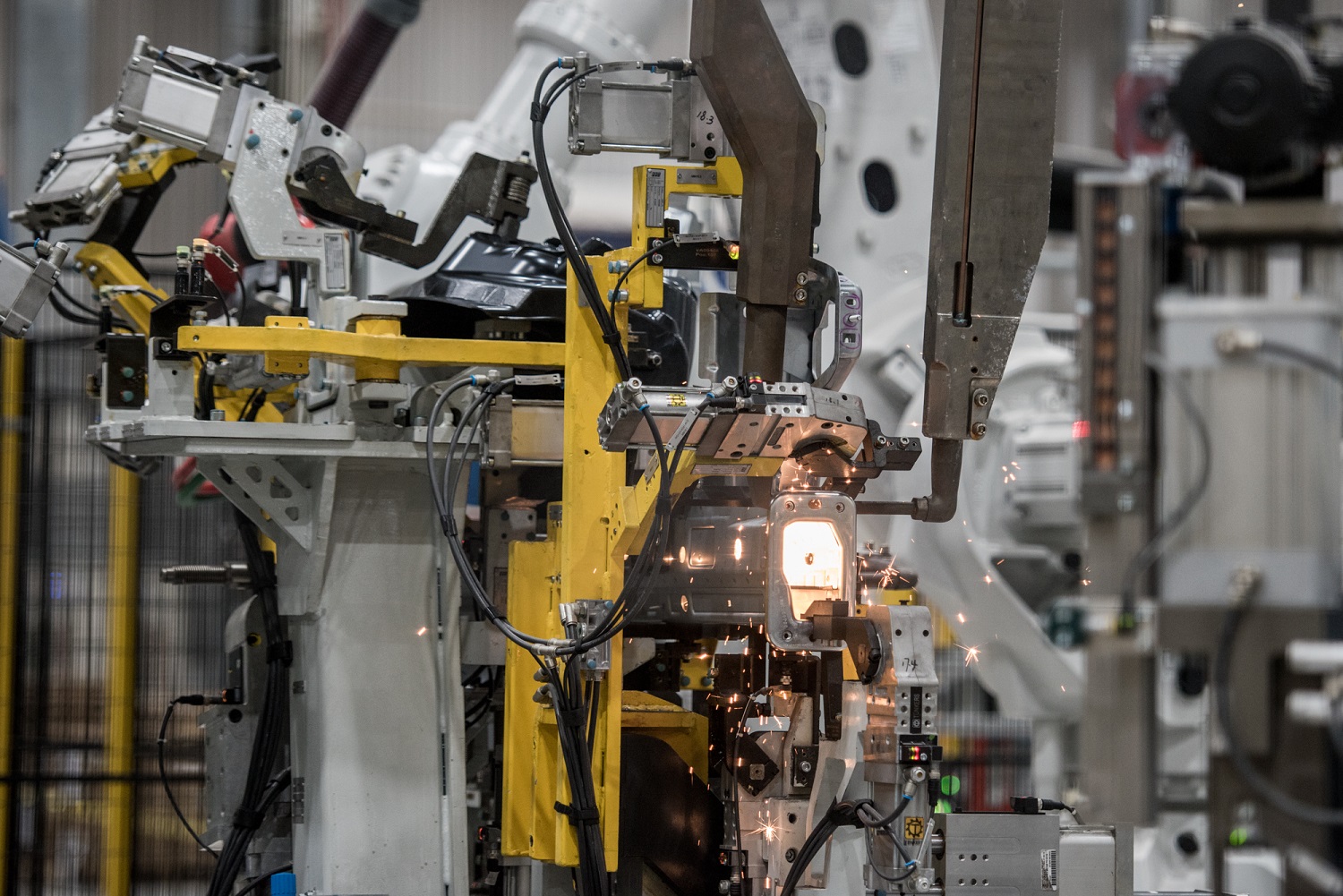The list of companies hoping to grab a slice of the electric car market in America grows monthly. Many are start-ups that you’ve never heard of — and that you may never hear about, because the leap between loudly stating that you’re going to build a car and doing it is significant.
Vietnam-based VinFast harbors similar ambitions but it has a very different background. It’s part of Vingroup, an industrial giant that stands proud as one of the largest conglomerates in Vietnam and whose revenues accounted for about 2.2% of the nation’s GDP in 2020. That’s huge. It does not lack the funds to become a global carmaker; it also doesn’t lack the experience. VinFast’s cars, buses, and scooters are a reasonably common sight on Vietnamese roads, and Vingroup operates a stunningly wide selection of businesses in sectors like construction, education, tourism, and health care. This isn’t the automotive equivalent of a middle-school garage band — it’s Warped Tour material.
The first America-bound VinFast models are scheduled to reach our shores by the end of 2022. I visited the company’s factory and headquarters in Vietnam to get a better idea of whether this newcomer is capable of taking on more established carmakers in the EV ring.

Playing it safe
VinFast will send two EVs called VF 8 and VF 9, respectively, to plant a stake in the American market. Only the former was available to drive on a very short course set up close to the company’s factory in Vietnam. Shown above, it takes the form of a five-seater family-hauler that stretches 187 inches long, 74.8 inches wide, and 65.4 inches tall, dimensions that make it approximately six inches longer and an inch wider than a Toyota RAV4 and exactly as tall. Visually, it’s characterized by a nearly grille-less front end with split lights and a pair of horizontal rear lights connected by a light bar. Designers played it safe here and that’s likely a wise decision: convincing drivers to buy a car from a new brand is difficult enough without having to sell them on a design that looks like it was beamed from an unexplored corner of space.
My time behind the wheel of a pre-production prototype was too short to provide meaningful driving impressions. The VF 8 seemingly drives like most EVs, so it’s quick off the line, smooth, and silent. It features a frunk big enough to store small bags and a spacious cabin with almost no buttons; nearly everything is controlled via the 15.6-inch, landscape-oriented touchscreen in the middle of the dashboard. VinFast promises a long list of standard tech features, including a wireless charging pad, a 360-degree camera, and traffic sign recognition. Remote-controlled parking, a summon mode, and in-car video streaming will be found on the list of options, though pricing hasn’t been announced.
By the numbers
At launch, VF 8 buyers will have two trim levels to choose from: Eco and Plus. Positioned at the bottom of the range, the Eco is fitted with two motors that draw electricity from a lithium-ion battery pack to zap the four wheels with 348 horsepower and 368 pound-feet of torque. VinFast quotes a zero-to-60-mph time of 5.8 seconds, which is reasonably quick, and a maximum driving range of either 260 or 292 miles depending on whether you get the small or the big battery pack. Stepping up to the Plus unlocks 402 horsepower, 457 pound-feet of torque, and a 5.3-second zero-to-60-mph sprint at the expense of driving range, which inevitably drops to 248 or 277 miles depending on the pack.
Interestingly, VinFast stresses it’s not targeting a specific carmaker (or a specific group of carmakers) as rivals; its main competitors, according to executives, are vehicles powered by an internal combustion engine. Its goal — and this could be the key to its success — is to offer EVs for roughly the same price as comparable gasoline-powered cars. It plans to achieve this by taking the battery pack out of the price.
On paper, this is a sound strategy: batteries are full of expensive minerals, and they represent a big part of the reason why EVs cost more than gasoline-powered models (and why incentives from federal and local governments are necessary to spur sales). You won’t be getting it for free, though. Instead, you’ll purchase the car and lease the battery by subscribing to one of two plans. Called Flexible, the first gives motorists a monthly allowance of 310 miles. It costs $35 for the VF 8, and VinFast charges $0.11 for each additional mile; driving 350 miles will cost you around $39.40. If you drive more than 310 miles per month, and odds are you do, the Fixed plan includes unlimited miles for $110 — that’s still less than most folks spend on gas each month. As a bonus, because you don’t own the battery pack you will not be liable for replacing it when it has lost too much of its capacity. VinFast pledges to replace the pack for free when its charging capacity falls below 70%.
The company adds that this subscription policy will apply to every EV it sells through 2023. Starting in 2024, buyers will be able to choose whether they lease or buy the battery pack. I’m told that executives expect the split between leasing and buying will be about 50/50.
Sweet home North Carolina
What we have here, then, is an attractive electric crossover developed for and priced close to the mainstream. VinFast can talk the talk, and it looks like the company has what it takes to walk the walk as well. It’s well-funded, it’s well-organized, it’s experienced, and it’s humble — these are rare (and underrated!) qualities in this segment of the market and they’re crucial to the success of any car company in 2022.
Of course, it takes a lot more than being well-intentioned to make it in the car industry and that fact isn’t lost on the company. It teamed up with some of the world’s biggest and most respected suppliers (including Bosch and Magna Steyr) to bring the VF 8 and the VF 9 to the market, and it joined forces with Volkswagen’s Electrify America to offer future owners charging options across the nation and smartphone integration. It’s handling many aspects of the car business in-house, but it’s not afraid to reach out and ask for help when it makes sense to.
Production is being kept in-house as well, and the VinFast approach to turning an assortment of pieces of plastic and sheet metal into a 4,500-plus-pound machine that can take you out to eat is fascinating. Located near Hai Phong in northern Vietnam, and built on a property that was essentially a swamp a few short years ago, the company’s car, bus, and scooter factory is a massive complex with a degree of automation that’s almost science fiction-like: 98% of the work performed in the body shop is automated. The first cars sold in the United States will come from this factory, but VinFast is investing $2 billion to build a manufacturing facility in Chatham County, North Carolina, that should be fully operational in 2024. I learned from a spokesperson that the American factory will feature a similar level of automation.

Coming soon to a mall near you
VinFast has already opened reservations for the VF 8 and the VF 9. Pricing for the 8 starts at $40,700 for an Eco model with the smaller, 260-mile battery pack while stepping up to the bigger, 292-mile unit costs $41,000. The Plus trim is priced at $47,700 and $48,000, respectively. These figures are competitive for the segment, and note that they don’t include any and all available incentives.
Buyers in the market for the roomier VF 9 need to set aside $55,500 for the base Eco trim, $56,000 for the entry-level model with the big battery, $60,500 for the Plus, and $61,000 for the Plus with the big battery. The first deliveries are scheduled for late 2022 but there’s a catch — and it’s not a small one. The company wants to bypass the traditional dealer model, meaning it will sell cars directly to consumers (like a growing number of carmakers) rather than through franchised stores and the pace of its growth will be largely limited by the laws in each state. What’s certain is that the company plans to open 30 stores (including some in malls) in California before the end of 2022.
One of the fascinating aspects of the car industry in the 2020s is that technology opens the doors to surprising outsiders — even Sony, the purveyor of the Walkman and the PlayStation, wants a slice of the EV segment. VinFast is another unexpected entrant. Will buyers bite? I think so, at least those who want an electric car. It’s tough to start from scratch, especially in a market as challenging and competitive as ours, but American buyers are willing to try new things when they’re compelling. Remember: no one had heard of a Kia in the early 1990s. The firm made its debut in America in 1993 and sold merely 692 cars (!) during the 1994 calendar year. In 2021, it sold 701,416 cars here.
Updated 4/21/2022: Added details about the option to buy the battery pack starting in 2024.
